German Recession – Another domino falls
News
|
Posted 21/02/2024
|
2403
Germany has fallen into recession this month, on the same day Japan also technically fell into recession following a succession of countries following the same fate. So, what has driven Germany to shrink 0.3% in 2023 making it the worst performing major economy in the world? According to Bundesbank, the previous engine of Europe is set to continue to shrink in the first three months of the year, blaming government policy as well as transport strikes and weak consumer and industrial demand. The German Minister of the Economy recently blamed Germanys ‘dramatically bad’ economy on 3 factors high energy prices, increased military expenses and reduced exports to China as the cause.
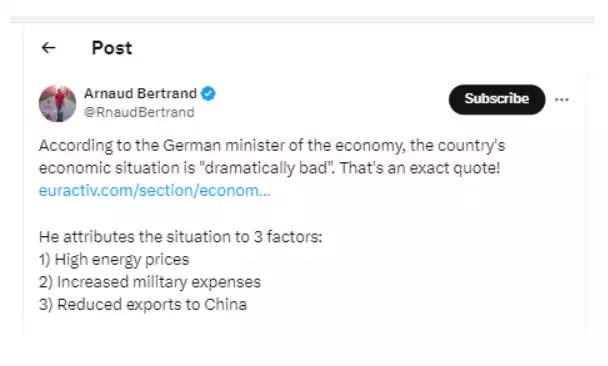
Energy Policy
On top of the disastrous effects of the Russian war on gas prices in Germany, in the last decade, due to the renewable and green energy policy, Germany has systematically shutdown all of their nuclear power plants, with the last of these to be shutdown in April 2024, it was not unusual in Berlin to see the slogans on cars saying ‘Nuclear power, no thanks!’. But with most other large economies such as China, Japan and America looking towards nuclear to replace greenhouse gas producing plants, Germany’s shutdown has been viewed with a lot of scepticism. Proponents of the shutdown had looked towards green energy as a nuclear replacement which has appears to have been both a poor financial decision – with energy prices increasing - as well as premature with green energy not at a technological level to be able to replace demand and reliability.
Berlin has recently announced plans to spend €16 billion on new gas-fired power plants. These plants needless to say do not follow the renewable plan that so many anti-nuclear anti-coal proponents touted being able to replace cheap nuclear energy. This is on the back of an inability to access cheap Russian gas due to Nordstream I and Nordstream II destruction, with scientist claiming at the time it was the worst natural gas leak ever….
An additional failure of Green sustainable energy policy in Russia was the dismantling of a wind farms in Germany to expand the Garzweiler Ignite coal mine in October 2022.
It is no wonder then that over 10 years the average gas contract prices rose for 7.2 to 16.2 euro cents per kilowatt hour and electricity rose from €84 to €133 per month for an average 3 person household.
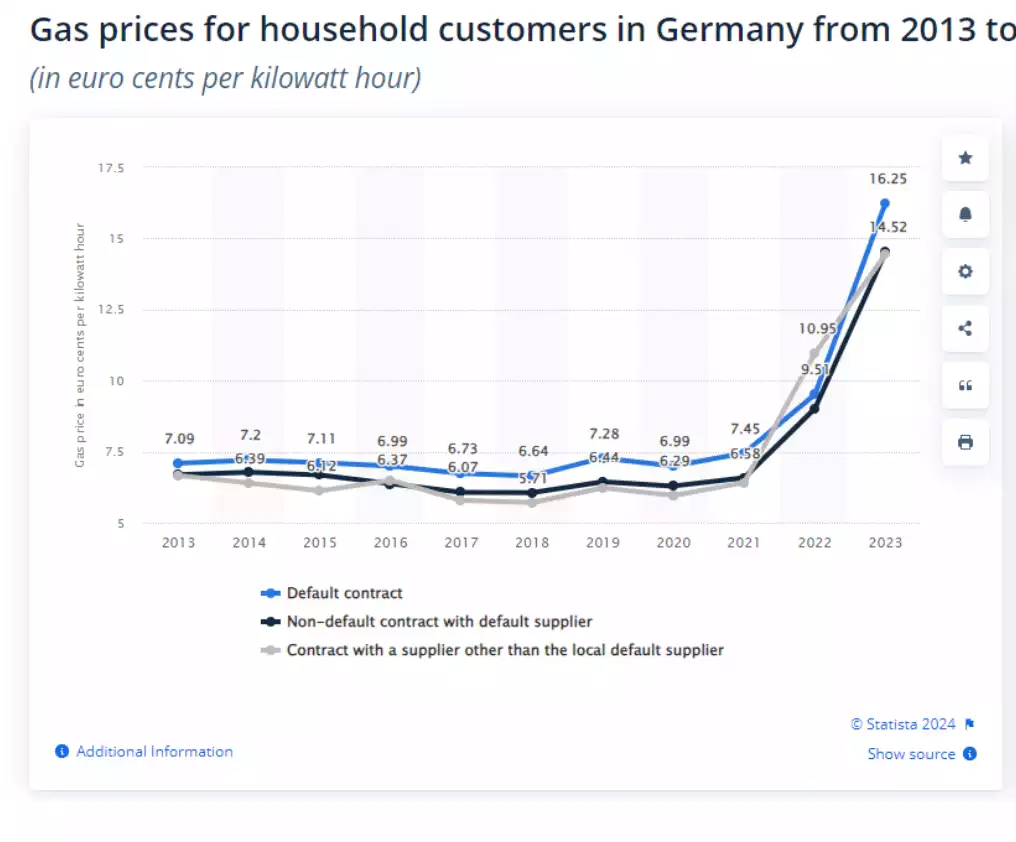
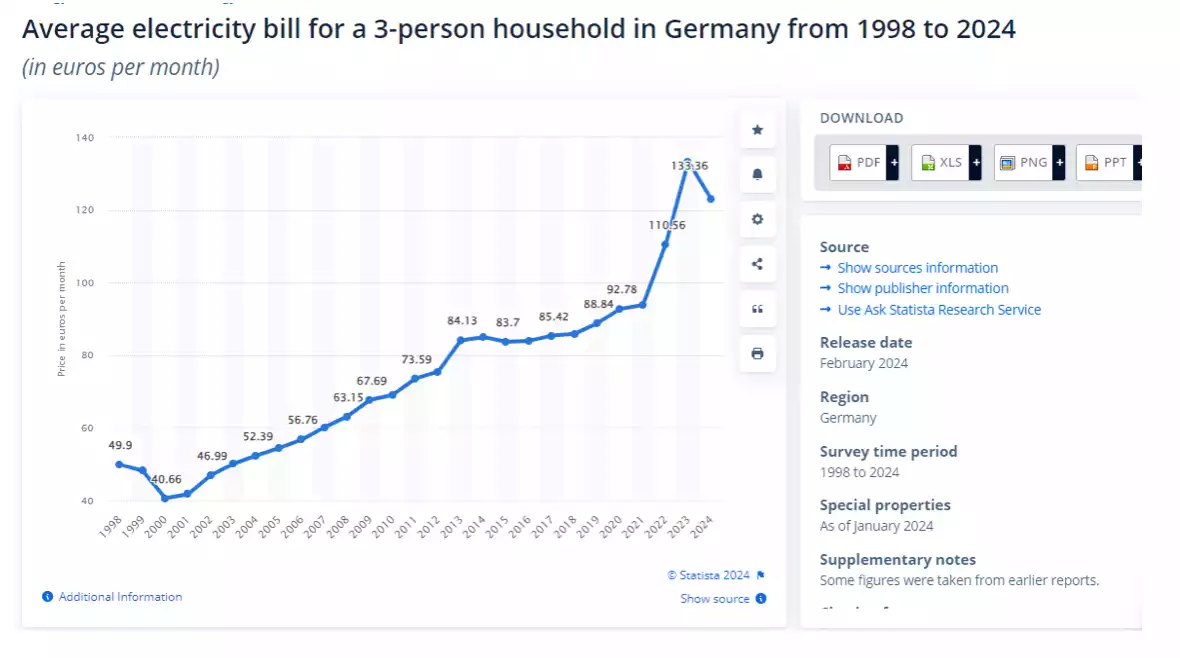
Back to the Industrial Future
So, as the Economy Minister of Germany recently stating the German Economy is ‘Dramatically Bad’ and with German Industrial production (excluding construction) falling back to the levels of 2006, this German recession is likely to continue with Germanys biggest trading partner of 8 years, China, in a similar (albeit different reason) recession.
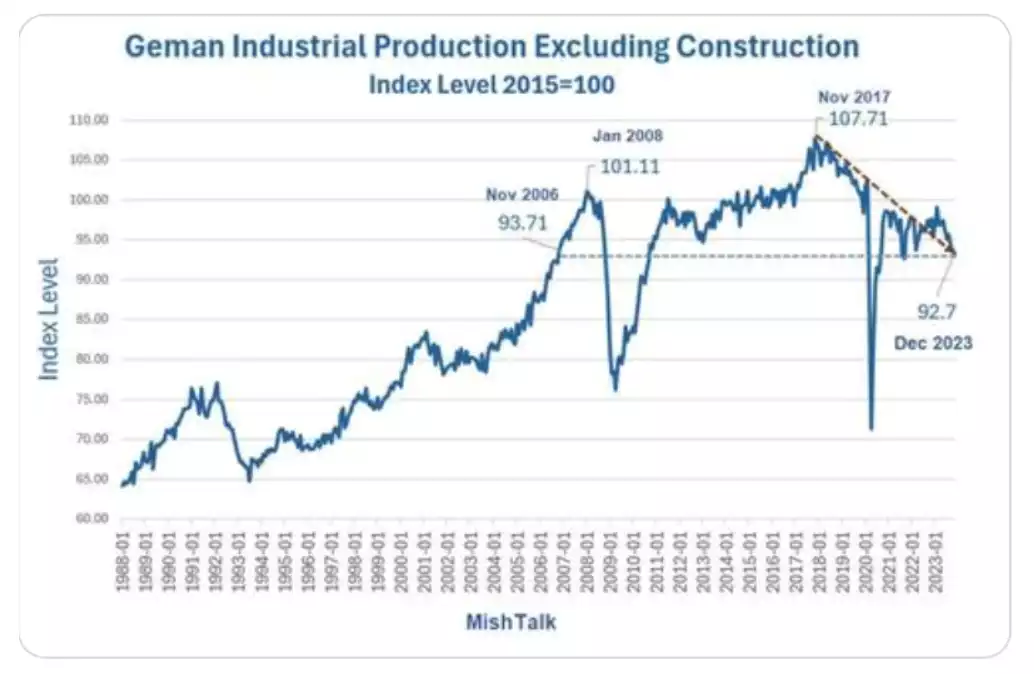
China has been Germany’s biggest trading partner for 8 years and last year, deliveries fell by roughly €97 billion Euro, with cars, chemicals particularly down and likely to collapse further. In 2023 trade between Germany and China sat at €253 billion but with falling Chinese demand in 2024 the U.S. is likely to become number 1 again with a trade volume of €252.3 billion.
The export orientated high energy usage chemical industry has seen 2023 production fall to its lowest level since 1995. German chemical companies are putting on hold expansion plans or shutting existing capacity due to high energy prices. The chemical industry has been so hard hit, Markus Steilemann, president of the VCI chemicals industry lobbying group, representing 1900 companies recently stated ‘the house is on fire’. With 446,000 employees in the chemical industry representing 5% of German GDP this is a dire indictment for the German economy. Recently BASF cut 2,600 jobs in 2023 (representing around 0.6% of industry employees) with many other small to medium companies shuttering sites.
Recession Dominos Begin to fall
The top 10 largest economies in order are:
- USA
- China
- Germany
- Japan
- India
- UK
- France
- Italy
- Brazil
- Canada
Of these economies, Germany, Japan and the UK are in recession (China falling fast) with many other countries such as Canada and Australia in GDP per capita recessions, with immigration the only masking variable. Yesterday we wrote to the U.S. also using this trick to prop up the numbers. Other countries such as Malaysia, Peru, Finland and Denmark are also in recession as all the dominos continue to fall.
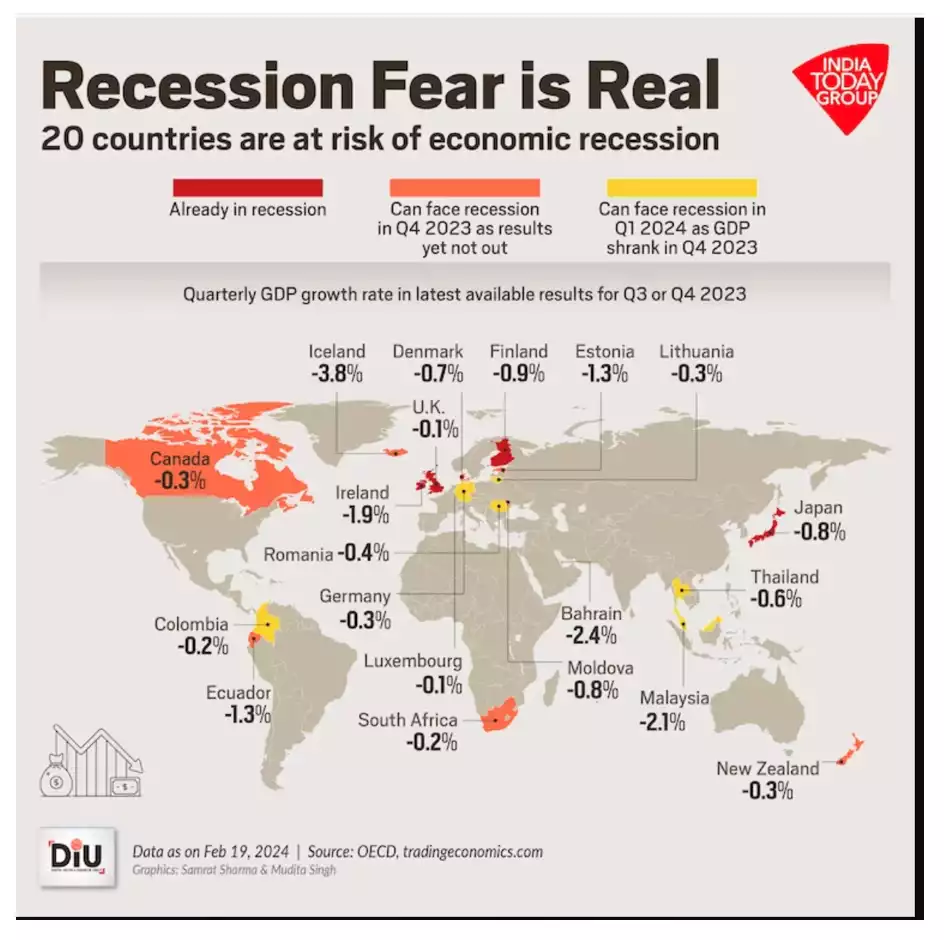
So remember the last GFC – when gold prices skyrocketed, its only a matter of time for the rest of the dominos to fall…